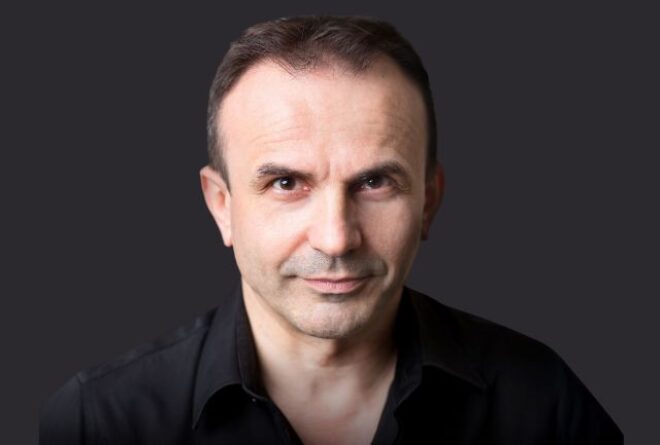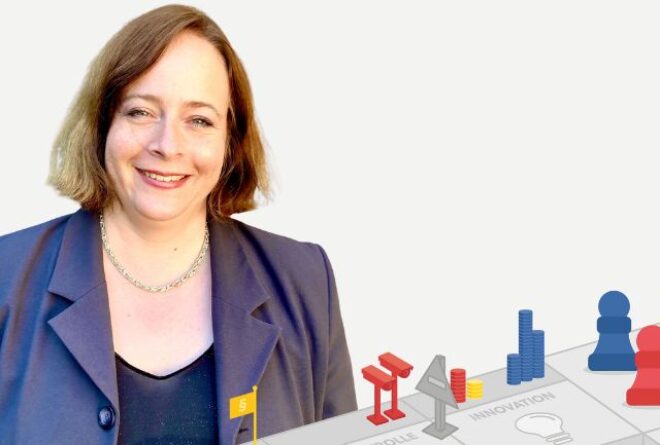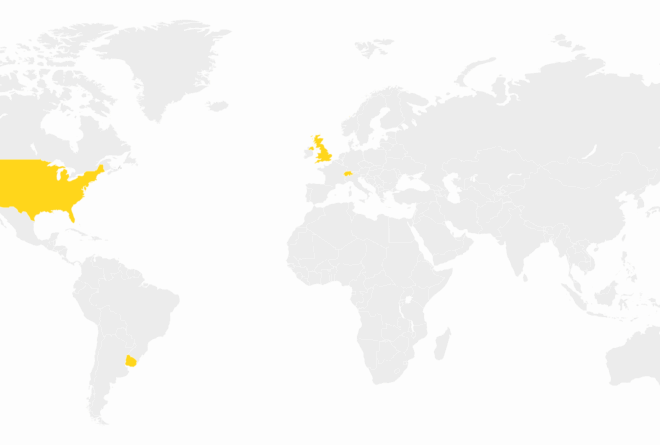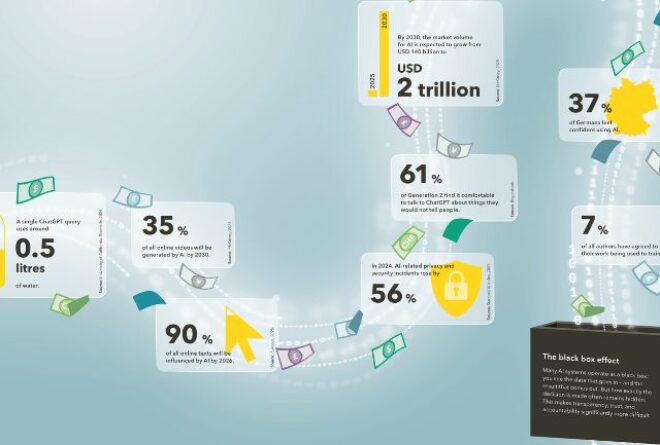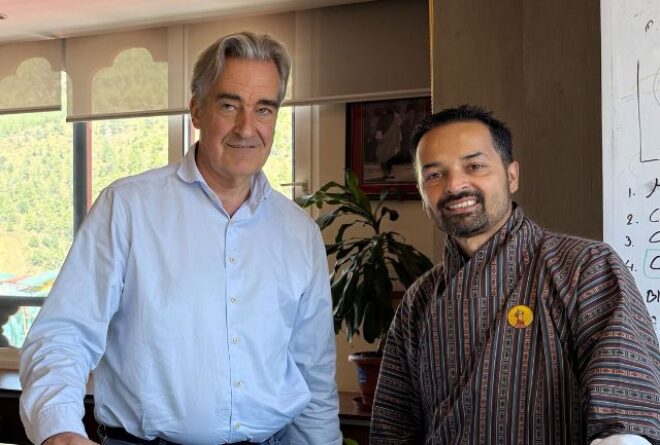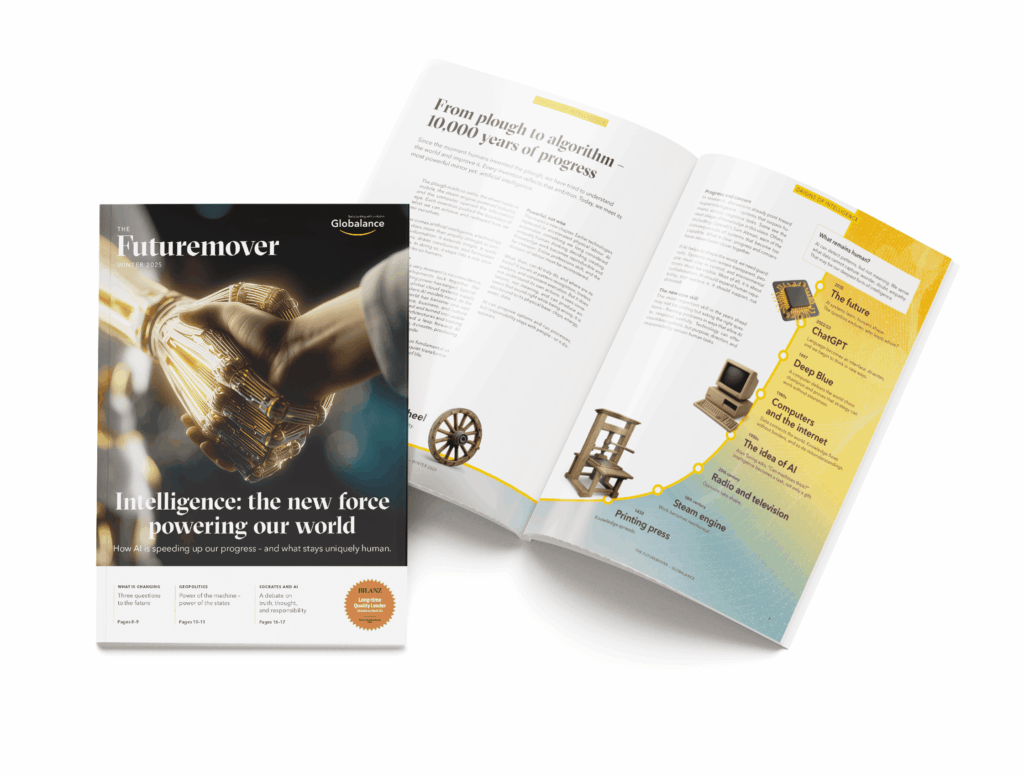News & Trends
Personalized therapies are transforming medicine

Tailor-made treatments instead of standard therapies: personalized medicine is fundamentally transforming healthcare. Thanks to innovative technologies, cell and gene therapies could reach more people in the future – an important step forward.
Interview with Thomas Eaton from Limula
Limula SA is transforming the production of cell and gene therapies with an automated and scalable manufacturing solution. The Lausanne-based start-up was founded in 2020 and today employs 20 people.
Thomas Eaton, CFO of the Swiss start-up Limula, explains where the opportunities of this form of medicine lie – and which hurdles still need to be overcome.
Thomas Eaton, what problem is Limula solving?
Cell therapies are considered groundbreaking, but currently, only very few people benefit from them. A single dose currently costs at least 500,000 Swiss francs. Although the results are highly promising – in cancer treatments we’re talking about a response rate of up to 90 percent – only about two percent of eligible patients currently receive this treatment. This is where we come in: we provide clinics with a device that enables them to produce cell therapies in an automated way. This makes them more affordable and widely accessible.
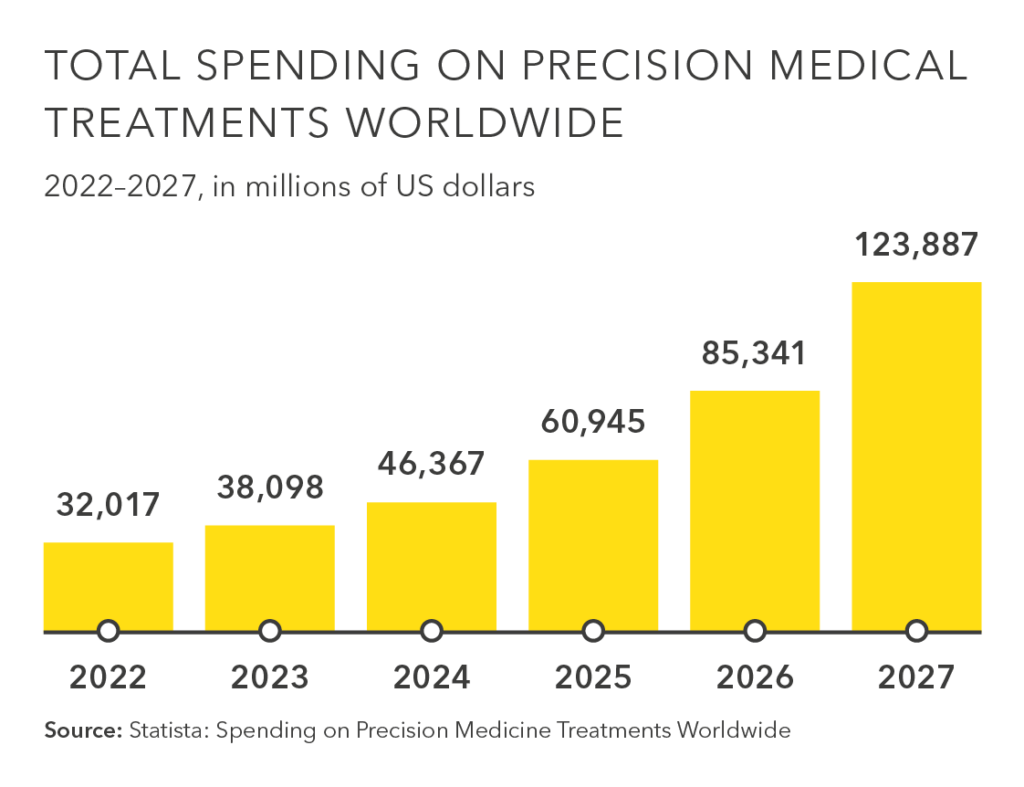
How does your solution work?
Today, clinics extract cells from a patient and send them to a central lab, where they are analyzed, processed, and sent back to the clinic. Our platform technology, LimONE, enables the production of cell therapies directly at the point of care – in a single device and fully automated end-to-end. This saves time, infrastructure, and costs.
For which therapies is LimONE suitable?
Our solution is designed for cell therapies in cancer treatment. A specific example is personalized leukemia treatments with CAR-T cell therapies. In this case, patients’ immune cells are manipulated outside the body to target cancer cells. This has led to full recovery in terminal cancer patients who had failed all other therapies – with a single injection. One treatment instead of repeated, long-term therapies – that’s a paradigm shift for healthcare.
Where does Limula stand as a young start-up in this development?
In the first four years, we went from the initial concept to a working prototype. In summer 2024, we closed our first equity round, raising a total of 7.2 million Swiss francs. This enabled us to run pilot projects in five countries. Our early adopters include clinical research centers such as university hospitals. In March 2025, we officially launched LimONE to the market. We have the technology, we know the market – now we just need to scale our product.
«We make cell therapies scalable.»
What about the competition – who are your competitors?
Part of our mission is to overcome the limitations of existing technology. I don’t really see direct competition, because our automation approach is truly unique. Just like capsule coffee machines disrupted the coffee market, we’re revolutionizing the medical market for cell therapies. Right now, we’re focusing on cancer treatments, but the principle can be applied to many other therapies, such as diabetes.
What are the strengths and limitations of personalized medicine?
Cell and gene therapies are the ultimate form of personalized medicine because they are “living drugs” made from a patient’s own cells. However, the production is complex and expensive. Cell therapy is the first kind of medication that is unique to each individual. This highly personalized medicine is only truly revolutionary if its highly effective therapies are accessible to everyone.
What will medicine look like in 2050?
A person comes to the clinic with a disease, gets treated with their own cells – and is cured. For that to happen, we need to massively scale these therapies. The U.S. Food and Drug Administration (FDA) expects over a hundred approved cell therapies for cancer alone by 2030 – right now, there are just seven. The development is rapid!
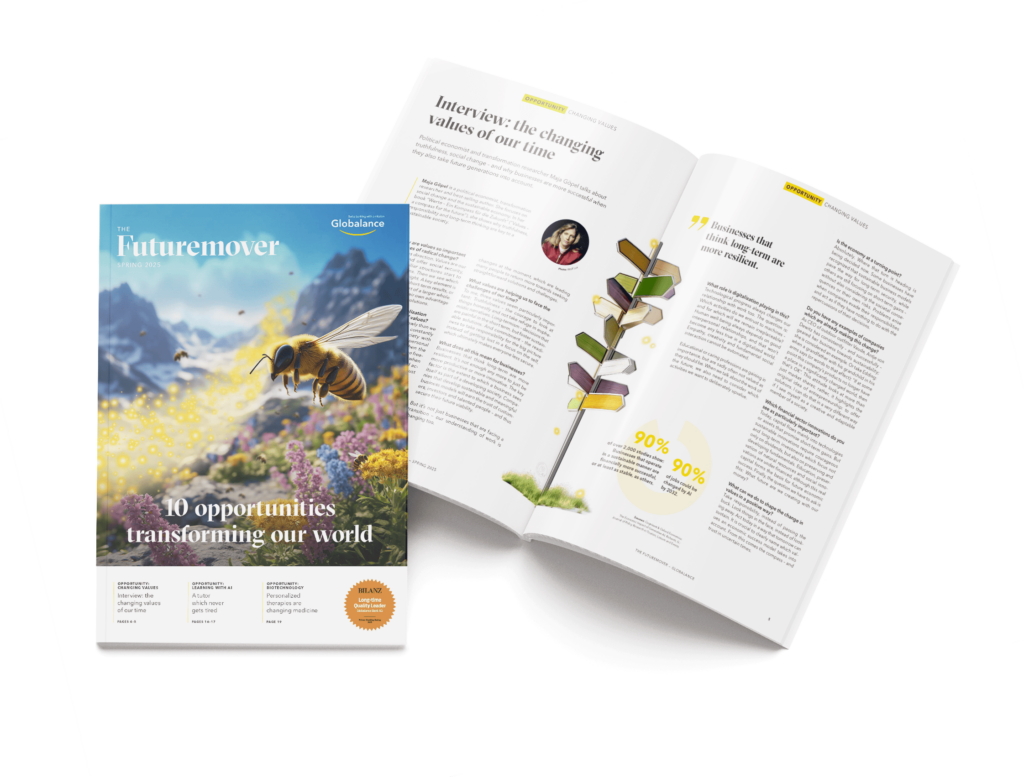
Discover the entire issue
Read more articles from our current issue: ‘10 opportunities
transforming our world’.
Be part of the solution and stay informed with the Futuremover.
Subscribe now and shape the future!
Magazin abonnieren EN
"*" indicates required fields
